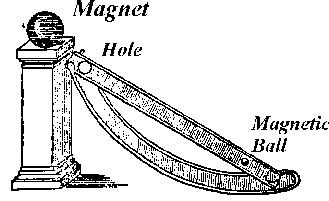Speakpigeon
Valued Senior Member
If I can imagine it, it's logically possible.
Test: square circle? No, I can't.
Test: The Earth is flat? Yes, I can.
Test: God? Well, I sure can imagine something, but I wouldn't say it looks like God. So, me, I can't.
OK, it's good to me, if I can imagine it, it's logically possible.
EB
Test: square circle? No, I can't.
Test: The Earth is flat? Yes, I can.
Test: God? Well, I sure can imagine something, but I wouldn't say it looks like God. So, me, I can't.
OK, it's good to me, if I can imagine it, it's logically possible.
EB

